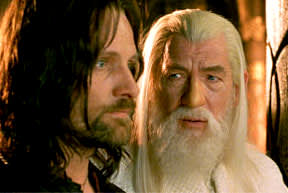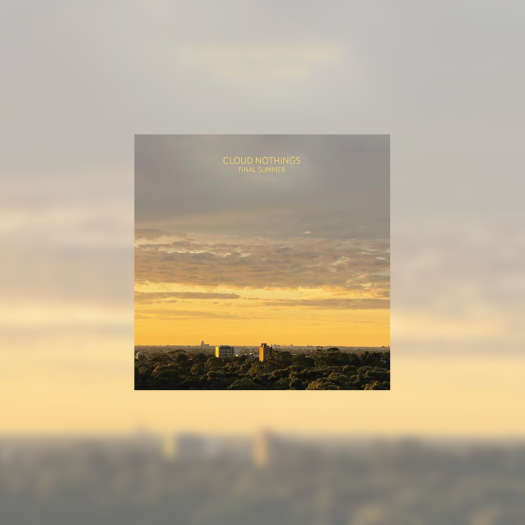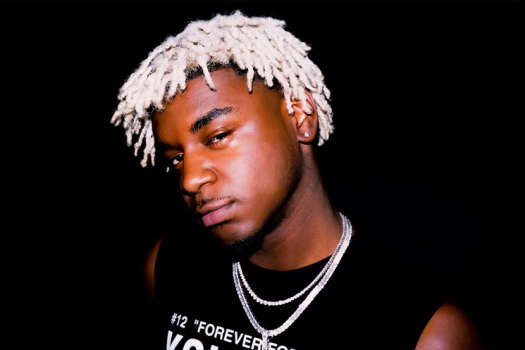Epic. Everything about The Lord of the Rings trilogy and The Return of the King in particular, its third and final instalment for those recently coming out of comas, is epic. From the impossibly large but gripping battles to the rousing, emotionally-charged speeches to the breathtakingly beautiful shots to the time-tested story to the overall superb level of acting epic.
And yet that word may not do justice to the enormity of the accomplishments of Peter Jackson and all those involved in making this trilogy. Even after all the praise, all the hyperbole, all the accolades, which may have planted the seeds of apathy in the soul of the stoutest hobbit, especially after the barrage of commercial tie-ins started in advance of its release, after watching, nay, being enveloped by The Return of the King, all expectations are quashed and all doubt is erased, as it is simply stunning.
Unlike other trilogies in the past (Indiana Jones, Star Wars, The Matrix), which were more a series of sequels, the third in writer J.R.R. Tolkien's grand tale is all about majestic battles, selfless sacrifices, the struggle between a seemingly overmatched good and an impossible evil, bravery in the face of hopelessness and epic (see, there it is again) conclusions.
Building on the greatness and impressive accomplishments of its previous two offerings, The Return of the King follows through to the bitter end the seemingly futile attempts of Frodo, Sam and Gollum to destroy the one ring of power in the fires of Mount Doom, the ostensibly bleak final battles between the dark lord Sauron's forces and the vastly outnumbered forces of men, steered by the wizard Gandalf, and Aragorn's heroic evolution from ranger to king.
But over the course of its three-hour-and-20-minute running time, The Return of the King touches on so many adventures within the adventure, characters and emotions that plot summaries are futile in the face of its complexity, made all the more impressive by the seeming ease with which it was crafted. And while the overall project is superb, there are highlights: the charge/counter-charge of the riders of Rohan and Sauron's giant elephants, Sam's battle with the giant spider Shelob, the siege of Minas Tirith, Frodo and Gollum's battle over the ring in Mount Doom, Aragorn's speech before the hopeless charge towards the black gate of Mordor, and all things Gandalf-related.
Of course, those wishing to nitpick about the differences between Tolkien's work and Jackson's changes will have all the ammo they need here. Especially since Christopher Lee's Sarumon is utterly absent (wait for the extended version) and the ending of the books, with the return to the shire and its twists, was apparently not even shot. Also, the overall metaphors for both World Wars, Nazi-ism and the rise of fascism seem less pronounced in the films than in Tolkein's literary work. And of course, there is less singing.
But after experiencing The Return of the King, then quickly running to the washroom, it is almost three-and-a-half hours, after all, it is safe to say, without hyperbole, that The Lord of The Rings trilogy is one of the most ambitious and greatest film accomplishments ever. It is, in fact, an accomplishment that may never be equalled. (Alliance Atlantis)
And yet that word may not do justice to the enormity of the accomplishments of Peter Jackson and all those involved in making this trilogy. Even after all the praise, all the hyperbole, all the accolades, which may have planted the seeds of apathy in the soul of the stoutest hobbit, especially after the barrage of commercial tie-ins started in advance of its release, after watching, nay, being enveloped by The Return of the King, all expectations are quashed and all doubt is erased, as it is simply stunning.
Unlike other trilogies in the past (Indiana Jones, Star Wars, The Matrix), which were more a series of sequels, the third in writer J.R.R. Tolkien's grand tale is all about majestic battles, selfless sacrifices, the struggle between a seemingly overmatched good and an impossible evil, bravery in the face of hopelessness and epic (see, there it is again) conclusions.
Building on the greatness and impressive accomplishments of its previous two offerings, The Return of the King follows through to the bitter end the seemingly futile attempts of Frodo, Sam and Gollum to destroy the one ring of power in the fires of Mount Doom, the ostensibly bleak final battles between the dark lord Sauron's forces and the vastly outnumbered forces of men, steered by the wizard Gandalf, and Aragorn's heroic evolution from ranger to king.
But over the course of its three-hour-and-20-minute running time, The Return of the King touches on so many adventures within the adventure, characters and emotions that plot summaries are futile in the face of its complexity, made all the more impressive by the seeming ease with which it was crafted. And while the overall project is superb, there are highlights: the charge/counter-charge of the riders of Rohan and Sauron's giant elephants, Sam's battle with the giant spider Shelob, the siege of Minas Tirith, Frodo and Gollum's battle over the ring in Mount Doom, Aragorn's speech before the hopeless charge towards the black gate of Mordor, and all things Gandalf-related.
Of course, those wishing to nitpick about the differences between Tolkien's work and Jackson's changes will have all the ammo they need here. Especially since Christopher Lee's Sarumon is utterly absent (wait for the extended version) and the ending of the books, with the return to the shire and its twists, was apparently not even shot. Also, the overall metaphors for both World Wars, Nazi-ism and the rise of fascism seem less pronounced in the films than in Tolkein's literary work. And of course, there is less singing.
But after experiencing The Return of the King, then quickly running to the washroom, it is almost three-and-a-half hours, after all, it is safe to say, without hyperbole, that The Lord of The Rings trilogy is one of the most ambitious and greatest film accomplishments ever. It is, in fact, an accomplishment that may never be equalled. (Alliance Atlantis)




